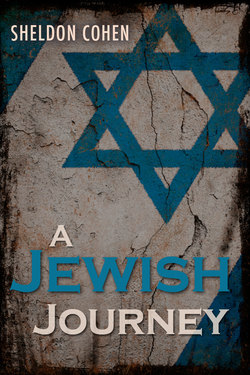Читать книгу A Jewish Journey - Sheldon Cohen - Страница 31
На сайте Литреса книга снята с продажи.
“It’s settled then, we’ll sell the business,” said Moritz looking at his cousin. “I’ll take my family to Germany, and I’ll open up a garment business. You, cousin, can set up shop in the United States, and then we can merge. We’ll become an international force,” laughed Moritz. They all laughed together attempting to insert some humor into this serious life-changing decision.
ОглавлениеMoritz wrote to his father and told him of his plans to leave. Jacob accepted his son’s decision, but wrote back and he told Moritz that in spite of the dangers he would stay in Russia and tend to his congregation. In addition, he wrote Moritz that he would visit him before he left to say farewell to the entire family—and deliver to him the Torah that passed to each generation.
Jacob arrived. It was a tearful farewell. Moritz accepted the Torah from his father. He looked at this old precious relic from his family and Judaism. “I will protect it and pass it on, father.”
By 1904, everyone had moved except Moritz. The remainder of his family settled matters in Russia and departed for New York. It remained for Moritz to tend to the loose ends of the sale of the business and to sell his house. Then he would join his family, but before his family left for the safety of Germany, he took his son, aside.
“Add this to your luggage, Sam.”
“What is that?” asked Sam.
“This is the Torah passed down from our fathers for six generations and written by your great-great-great-great grandfather whose signature is on the end of the scroll, as are all our signatures that possess this Torah. It is a symbol of our family. If you become a doctor, you will use it as a guide to ethical matters and never forget your Jewishness. Those are part of the instructions given to me, and I pass it on to you now to ensure its safety. There are too many fires and enemies here. You are a man now.”
The Czar’s stated intention was to get one third of the Jews to emigrate, one third to die, and one third exiled to a distant location. He was well on his way to this goal. Two million Jews had left: most to the United States, many to Western Europe, and some to the middle east.
In the meantime, conditions were only worsening for Jews in Russia. Revolutionary anti-Semitic movements sprung up, pressure against the Jews intensified and organizations evolved with the intended purpose of destroying the Jews before the “Israelite ravishers” established their own Czardom and destroyed Christian civilization.
This notion, fueled by such documents as the Protocols of the Elders of Zion, led to another wave of pogroms, throughout the country including Kishinev. Much of the world reeled in horror, but the Czar ignored the pressure. His tropps and Russian peasants looted and destroyed Jewish shops, they set synagogues set on fire and desecrated Torah scrolls. Fear and panic ruled the day.
Over fifty people were injured, and nineteen killed. This was one of the smaller pogroms. Vicious attacks occurred in many other cities. Three thousand Jews died.
In Kishinev, Moritz Tepperovitch was making final arrangements to leave. He had managed to sell the business, but he did not get a fair price. Nevertheless, at the urging of his family he accepted the offer. He was to depart within two days. He said tearful good-byes to his many friends and was asleep when a rumbling noise in the distance awakened him. He had no idea what the noise was, but realized that it was getting louder. Then he understood. He was hearing profanities spoken with anger in the Russian language. There were many. This was not an argument between a few angry men, this was a march of many and they were coming in his direction. This was a riot. This is how the pogroms would start. He rushed to the living room to blow out a candle that served as a night light. Perhaps they would pass me up, he thought, if they see no light here, but it was all to no avail. A bright light filled the room accompanied by a large explosion that knocked Moritz to the floor—a firebomb. Thick black smoke filled the room through which the light of the flames danced. He started choking and gasping for breath. He fell to the ground and crawled, his nose close to the floor hoping for breathable oxygen, but there was none. He retched, further intensifying his increasing shortness of breath. He attempted to crawl toward the door, but he could not get his arms and legs to move. Flames surrounded him, oxygen starvation overcame him and the surrounding blackness and the dancing lights accentuated. He felt a sudden calmness and a floating sensation just before everything turned pitch black. The fire raged out of control.
